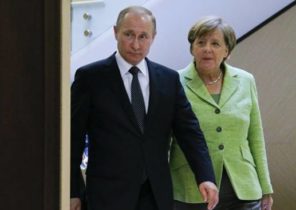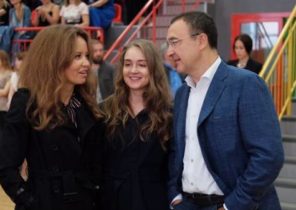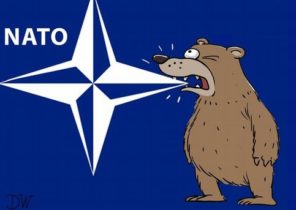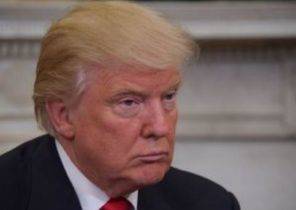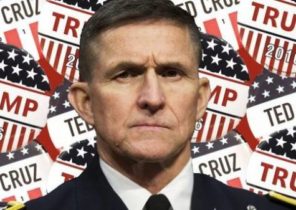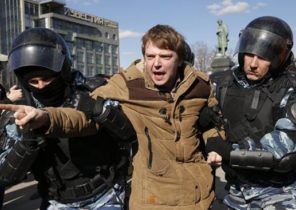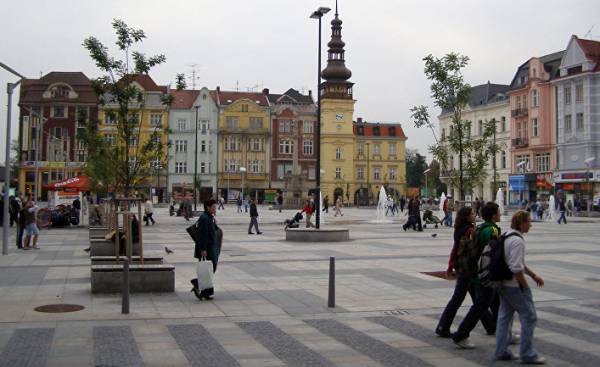
In the voice of the honorary Consul of the Russian Federation and the former mayor of Ostrava Alesha of Zenica sounded angrily: “But, Herr colleague, I have a feeling that we have no common topics of conversation,” so on the request for interview was the reaction of the man who calls himself the “oldest” the Russian diplomat in the Czech Republic.
Finally, he still agreed to give an interview. In the centre of Ostrava in the house next to the faculty of arts of the local University on the balcony you can see the Russian flag. There in his office, he works in the honorary Consul (this is an unpaid position with no special powers) for ten years. His activity as Consul of the Russian Federation he started 30 April 2008.
Who’s paying for all this?
The Czech in the role of the Russian Consul — is an unusual case. However, in 2008, to Sednicu addressed from the Embassy of Russia: “Ales he was chosen because of its active activities, contributing to the strengthening of bilateral relations between our countries in economic and humanitarian sphere”, — so commented on the selection of Secretary of the Embassy of the Russian Federation Vladimir Fedorov.
He himself explained the purpose, in particular, the fact that in 2008 Ostrava under his leadership, had successfully hosted a celebration in honor of the release, and that the city collaborated with partner Volgograd.
The position of honorary Consul is not paid, however he is able to find financing. Despite the fact that activities in support of Czech-Russian business neither Russia nor the Czech Republic do not sponsor, interest in the advertising cooperation, according to Zenica to show a Czech company. He turns to them with a proposal to partner with events that are guaranteed to get a lot of publicity.
“We never received from the Russian side of the crown. I almost engaged in business in the Czech Republic,” explains he. Every year it also claims to grants of the city of Ostrava and the Moravian-Silesian region. This year, unlike last, Consulate of the grant received.
At the same time he is the Director of the Russian-Czech scientific-cultural forum, which helps to Fund the event.
Ambassador of the Russian Federation, according to Zenica, does not give him any instructions. “The Ambassador can Express different wishes, and I have a right to Express his own. I’d be happy doing, because decent people go to meet each other,” says the Consul.
The powers of the honorary Consulate in Ostrava, in contrast to the Russian General consulates in Brno and Karlovy vary, are limited. For example, it does not issue visas.
As he says himself, mostly he is engaged in establishing contacts between businessmen from the Czech Republic and Russia, and also takes care of military graves and monuments. In addition, he conducts recreational activities for approximately 400 Russians living in the Moravian-Silesian region.
“When we organize some event, the Russian grandparents of grandchildren. They speak excellent Russian, but do not belong to the Russian minority. With them the number of the community would be more”, — says he, speaking of the Russian population in the Ostrava region.
The “old” Russian diplomat
In recent years, due to sanctions, the Czech-Russian business suffered a lot. Fell the ruble, the Czech goods to Russia grew, was limited to imports, and Russia itself is seeking the so-called localization, that is, to goods produced in its territory.
So he decided to include in the business portfolio for Czech companies and even Kazakhstan, Armenia and Belarus. “So we are to some extent raised the interest in our events, because there it is not only about Russia but about a whole list of countries. Kazakhstan is a rich country, which we still do not know, but it is growing rapidly, and exporters see opportunities there for myself. With Belarus already lifted the sanctions, and it is no longer limited. This country is also an interesting parterre. Armenia, though a small state, but there may be an opportunity,” concludes he.
The former mayor of Ostrava, even though the Russian Consul, enjoys his bonds, purchased in times of political activity. “I can appeal to those whom you know well, and whom they talk to you,” he says.
“In our time much has been done to care for Russian military cemeteries. Was carried out extensive reconstruction of all the graves to mark the anniversary of the end of the war. Ostrava could this action be proud of, and Russia attaches great importance,” adds he.
In fact, the duration of the mandate of the honorary Consul is not limited and is terminated by a special order. “Unlike the diplomats who come and go, I remain the longest in the service. Usually the term of up to six years, and since I’m here for the tenth year, I am the “old” diplomat”, he laughs.
From the diplomatic point of view, the Ostrava — is not fully Russian. There are honorary consulates of Finland, and Morocco. And Poland was opened in Ostrava even a Consulate General.
“First of all, you need to maintain excellent relations with the Polish Consulate,” says he, referring to the desire of the Polish Consulate to support the Association of the Ostrava region on the other side of the border. Consulate of Finland were opened in 2014, Morocco in 2015. Honorary Consul of the Russian Federation were present at the opening.
“Then the Consulate no longer held any events, and I was not invited, the organization of which they would be doing” — says he, noting that with its activities it does not compare.
Consulate DNR
But until recently in Ostrava worked another Consulate. We are talking about representation of the self-proclaimed Donetsk Republic. In early July this Consulate, rather, a civil Union under this name was closed by the court, which acted on the instructions of the Ministry of foreign Affairs of the Czech Republic.
But even he without an understanding attitude to the Donetsk “Consulate”. “Consulate of the defunct Republic is a nonexistent Consulate”, — he confidently declares.
“People have different motivation. Before someone declared themselves king or Pope, and today — Consul. But just look at the official list of diplomats, as will become clear, about what speech. As a rule, people are guided by the need to be seen,” adds he.
However, until then, until the court decided to close the Consulate in Donetsk, he has not officially commented on the existence of a non-existent representation. “My job is not included. We are engaged in humanitarian-cultural and economic issues,” he explains.
Generally, Sednicu all clear that the Consulate of the DNI was an ambitious initiative that it was necessary “to limit, because diplomacy has its own rules, and such excesses violate them”.


